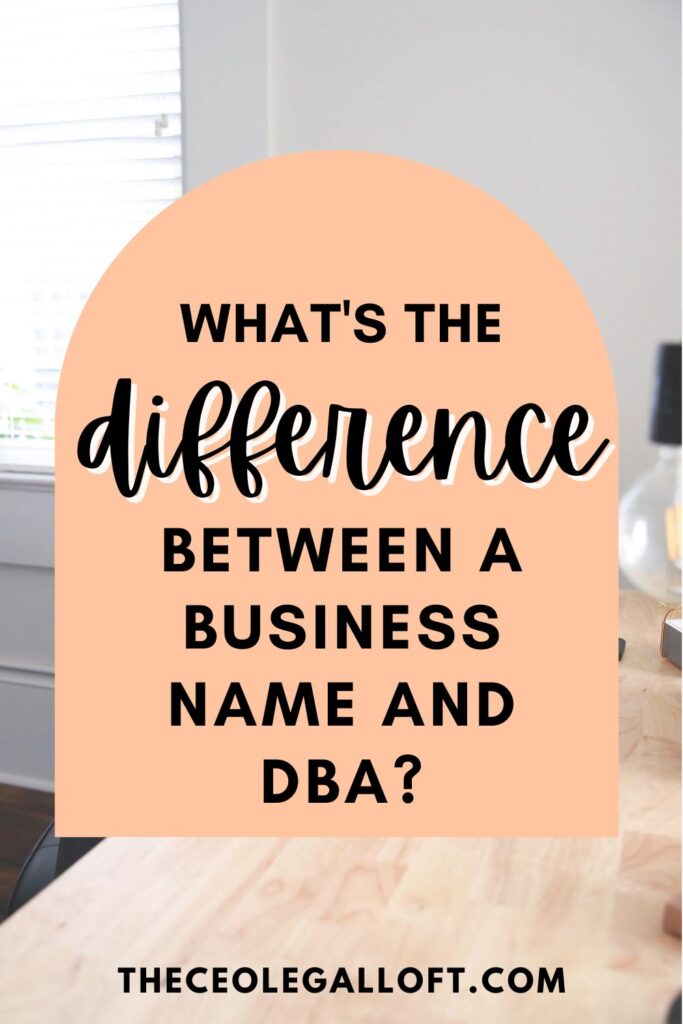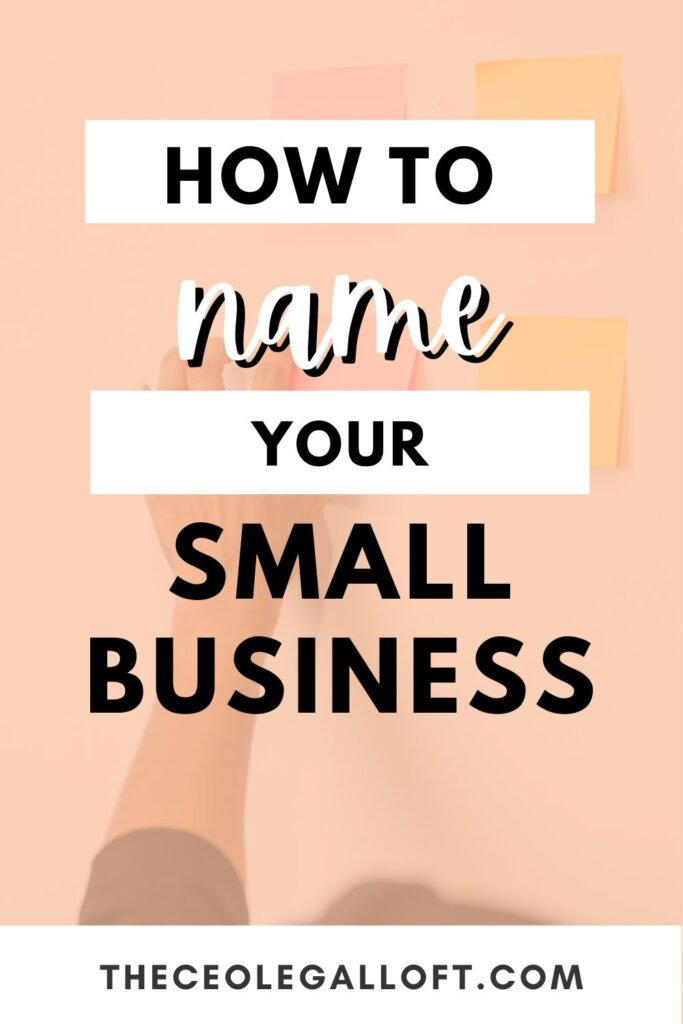A business name is the official name of a company, while a DBA (doing business as) trade name is a name used by a company for marketing and branding purposes. The main difference between the two is that a business name is registered with the government and can be used on legal documents, while a DBA (trade name) can only be used on marketing materials.
What is a Legal Business Name?
When you start a business, you’ll need to choose a name. You need to make sure that the name you choose is available and not already being used by another company. Your small business name is the name that is associated with your business entity registration.
The thought of choosing a company name is probably causing you some anxiety. I know because it’s something that we recently had to deal with when starting our new business and trying to come up with a name that wasn’t already taken was quite stressful.
I am going to share with you how to chose your business’s name and give you some tips on what to consider when picking a company name for your startup.
Choosing a Legal Name
We started by making a list of names I liked and doing some research, mainly through Google searches, the trademark search engine, and checking if the domain names were available. I had many false starts with this process and got frustrated several times, but eventually I ended up finding the perfect name.
Here are some things to keep in mind when searching and choosing your company name:
- Once you’ve chosen your business name, you can register it with the government. This can be through your state and/or at the United States Patent & Trademark Office (USPTO), if you want to protect your brand. Your company name is NOT required to be registered at the USPTO. But if you’re conducting business as a partnership, LLC, or corporation, it is required to be registered with your state.
- After your business name is registered, you can conduct business under the name and start using it on legal documents, websites, and other marketing materials.
- If you choose a name that’s already taken, your state and the USPTO will reject your application and you have to start the search all over again.
What is a “Doing Business As” or DBA?
A “Doing Business As” or DBA is a business name that is different from the legal name of the business. The DBA allows businesses to operate under a different name than their legal name. A DBA is also sometimes called a fictitious name or assumed name.
A DBA is not a separate legal entity from the business, and it does not provide any additional legal protection for the business. However, you can use a DBA to help build brand recognition and establish customer trust. A DBA is typically used for marketing purposes.
In order to register a DBA, businesses must typically file paperwork with their local government. The requirements for registering a DBA vary from state to state.

Do You Have To Register as a DBA?
In the majority of states, an individual or business needs to register their DBA to operate under a name other than their legal name.
There are a few different ways to register a DBA. Businesses can do it through their local county clerk’s office or through their state’s secretary of state office. The process and fees vary depending on where the business is located.
Additionally, many states require that you publish your DBA in a newspaper. In Florida, you’re required to advertise at least once in a newspaper that is located within the county where your principal place of business is located. You don’t have to provide proof that you’ve published your DBA, but will have to certify it in your paperwork.
In Florida, if you don’t do a DBA filing when required, it’s a misdemeanor of the second degree and punishable.
Overall, registering a DBA is relatively simple and straightforward. It can provide some advantages for businesses, especially when it comes to financial matters. But whether or not to register a DBA is ultimately up to the business owner.
What is an example of a DBA (trade name)?
An example of a DBA would be my business, The CEO Legal Loft. The business name is “Michelle W Murphy LLC”. But the DBA is The CEO Legal Loft, my front facing name so I can do business under that name.
Is a Trade Name the Same as a Trademark?
A trade name is the name of a business, product, or service. A trademark is a type of intellectual property that protects the use of a name, logo, or other distinctive sign. Trade names and trademarks can be similar, but they are not the same thing.
A trade name is simply the name under which a company does business. It can be the same as the company’s legal name, but it doesn’t have to be. For example, “Google” is a trade name, and so is ” Walmart.”
A trademark is a bit more complicated. It’s a type of intellectual property that protects the use of a distinctive sign. This could be a word, phrase, logo, colors, sounds, or other identifier of a company or its products. Registered trademarks are filed with the federal government and are subject to certain rules and regulations.
So, while trade names and trademarks can be similar, they are not the same thing. Trade names don’t have the same level of protection as trademarks, and they don’t have to follow the same rules and regulations.

Why “Doing Business As” or fictitious business name may be a good business strategy
There are many reasons why registering a “Doing Business As” (DBA) or fictitious business name may be a good business strategy.
For one, it can help you create a separate identity for your business. This can be important if you want to target a different market than your personal brand or if you simply want to keep your business and personal affairs separate. Additionally, having a DBA can make it easier to open bank accounts and get business credit, rather than in your personal name if you’re a sole proprietorship. This can help you better manage your finances and keep track of business expenses.
Finally, registering a DBA can give your customers and clients confidence that they are dealing with a legitimate, established business especially in instances where you’re a franchise. Overall, there are many benefits to registering a DBA for your business, and it is definitely worth considering if you are looking to create a successful and sustainable company.
Takeaway: A DBA should be used in instances where you don’t want to use your LLC, corporation, or legal name.
A DBA, or “doing business as,” is a way to operate your business where you don’t want to use your full legal name or if you want to operate under a different name than your LLC or corporation. A DBA can help you establish a more marketable name so that you can build a valuable brand.
Learn more about getting your business on right legal foot with The CEO Legal Kit. This is an all in one guide with videos and templates so that you know the common legal issues you’ll face and how to avoid them or handle them for your online business.

+ show Comments
- Hide Comments
add a comment